detail profile elizaveta svilova

Elizaveta Svilova
Yelizaveta Svilova
atau dikenal sebagai
Riwayat Hidup
Yelizaveta Ignatevna Svilova (Russian: Елизаве́та Игна́тьевна Сви́лова, rendered in Latin as Elizaveta Svilova) (5 September 1900, Moscow – 11 November 1975, Moscow) was a Russian filmmaker and film editor.
She is perhaps best known for making films with her husband Dziga Vertov and her brother-in-law Mikhail Kaufman.
She is also known for her documentaries about World War II and for appearing in and editing Man with a Movie Camera (1929).
Info Pribadi
Peran Yang Di Mainkan Elizaveta Svilova
 Popular neighborhoods that are openair prisons...
Popular neighborhoods that are openair prisons...Lluvia de jaulas 2019
Popular neighborhoods that are open-air prisons. Where beauty flirts with violence. The kingdom of the insubordinate children, veterans of the lead. A garden of amputated flowers, which with crutches on their backs, still grow and dance.
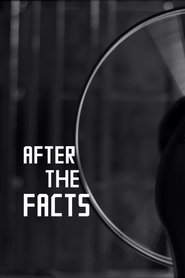 In the early years of cinema...
In the early years of cinema...After the Facts 2018
In the early years of cinema, editors were usually women. This short documentary looks at how they wielded power, and how their work was made invisible.
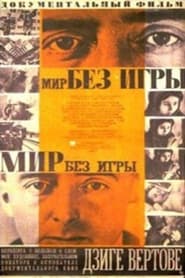 Documentary portrait of Dziga Vertov father...
Documentary portrait of Dziga Vertov father...World Without a Game 1966
Documentary portrait of Dziga Vertov, father of documentary cinema.
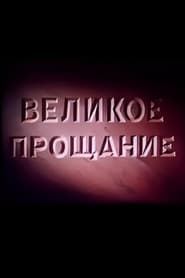 March 9th 1953 A gray sad day...
March 9th 1953 A gray sad day...Velikoye proshchaniye 1953
March 9th, 1953. A gray, sad day. Clouds float low over the Kremlin towers. A city that unrecognizably grew, prettier and matured - this Moscow froze in solemn grief. The country escorts its father and leader, Joseph Stalin.
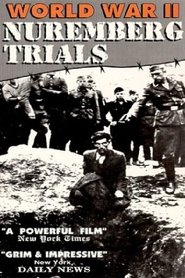 This riveting Russian documentary takes you...
This riveting Russian documentary takes you...Nuremberg Trials 1946
This riveting Russian documentary takes you inside the trials of the notorious German war criminals, brought to trial to account for their actions. The footage includes excerpts from the trials of many of the senior Nazis including Goebels and Goring.
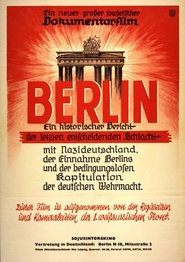 Documentary on the fall of the...
Documentary on the fall of the...The Fall of Berlin 1945
Documentary on the fall of the nazi Germany's capital, Berlin, edited and directed by the soviet filmmaker Yelizaveta Svilova
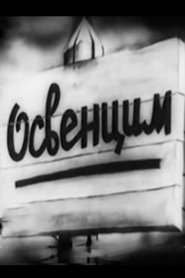 Soviet documentary shot right after liberation...
Soviet documentary shot right after liberation...Auschwitz 1945
Soviet documentary shot right after liberation of Auschwitz. Ot was used as evidence by the Soviet prosecution at the Nuremberg trials. In 2014, footage shot by cameraman Aleksandr Vorontsov, as well as his interview given in 1986 for German television, were included in Andre Singer’s documentary “Night Will Fall”.
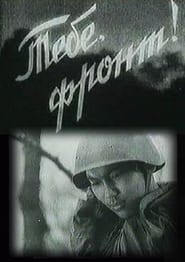 From the start Vertov made himself...
From the start Vertov made himself...For You at the Front! 1942
From the start, Vertov made himself known as an irreconcilable enemy of “acted films,” which he regarded as a violation of truth. At the peak of World War II, however, such lofty artistic principles proved impractical. Vertov’s poetic and patriotic For You, Front! is a fiction film with a script and two actors. In a letter to her fiancé, a soldier on the front, Saule asks if there is anything he needs from “our beloved Kazakhstan.” Yes there is, he replies: lead, which can be used to make bullets to kill the enemies of “our beloved country.”
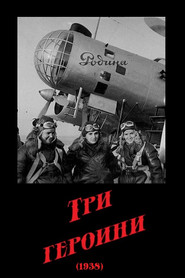 Follows the legendary female pilots Raskova...
Follows the legendary female pilots Raskova...Three Heroines 1938
Follows the legendary female pilots Raskova, Osipenko, and Grisodubova in their failed but magnificent attempt to make the first nonstop trans-Siberian flight. Using documentary reenactments, Vertov depicts the flight, the crash, the rescue, and the women’s heroic return to Moscow, where crowds shower them with flowers, and leaders with speeches.
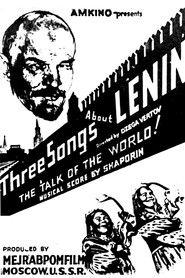 This documentary made up of 3 episodes...
This documentary made up of 3 episodes...Three Songs About Lenin 1934
This documentary, made up of 3 episodes, is based on three songs sung by anonymous people in Soviet Russia about Vladimir Ilyich Lenin.
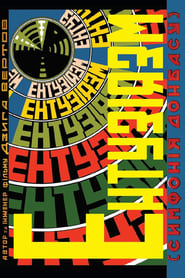 A lyrical documentary on the lives...
A lyrical documentary on the lives...Enthusiasm 1930
A lyrical documentary on the lives of Coal miners in the Donbass who are struggling to meet their production quotas under the Five Year Plan.
 A cameraman wanders around with a...
A cameraman wanders around with a...Man with a Movie Camera 1929
A cameraman wanders around with a camera slung over his shoulder, documenting urban life with dazzling inventiveness.
 The film is dedicated to the...
The film is dedicated to the...The Eleventh Year 1928
The film is dedicated to the achievements of the Ukrainian SSR for the eleventh anniversary of the October Revolution.
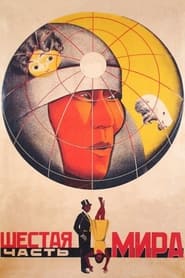 Through the travelogue format it depicts...
Through the travelogue format it depicts...A Sixth Part of the World 1926
Through the travelogue format, it depicts the multitude of Soviet peoples in remote areas of USSR and details the entirety of the wealth of the Soviet land. Focusing on cultural and economic diversity, the film is in fact a call for unification in order to build a "complete socialist society".
 Commissioned by the Moscow Soviet as...
Commissioned by the Moscow Soviet as...Stride, Soviet! 1926
Commissioned by the Moscow Soviet as a documentary and information film for the citizens of Moscow prior to municipal elections, film is a tableau of Soviet life and achievements in the period of reconstruction following the Civil War of 1917-1921.
 Dziga Vertovdirected Soviet newsreel covering First...
Dziga Vertovdirected Soviet newsreel covering First...Kino-Pravda No. 22: Lenin Is Alive in the Heart of the Peasant. A Film Story 1925
Dziga Vertov-directed Soviet newsreel covering: First anniversary of Lenin's death / Smycka of the city and the village: group of peasants visit Moscow / Lenin's effect on peasants and oppressed nations
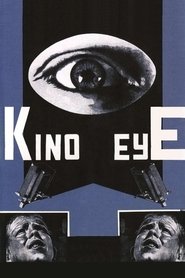 This documentary promoting the joys of...
This documentary promoting the joys of...Kino Eye 1924
This documentary promoting the joys of life in a Soviet village centers on the activities of the Young Pioneers. These children are constantly busy, pasting propaganda posters on walls, distributing hand bills, exhorting all to "buy from the cooperative" as opposed to the Public Sector, promoting temperance, and helping poor widows. Experimental portions of the film, projected in reverse, feature the un-slaughtering of a bull and the un-baking of bread.
 Dziga Vertovdirected Soviet newsreel covering Hunger...
Dziga Vertovdirected Soviet newsreel covering Hunger...Kino-Pravda No. 17 1923
Dziga Vertov-directed Soviet newsreel covering: Hunger and harvest / Alliance between city and country / Agricultural and home industries exhibition: To the exhibition, construction work and preparations, exhibits, map of the exhibition, visitors
 Dziga Vertovdirected Soviet newsreel covering IV...
Dziga Vertovdirected Soviet newsreel covering IV...Kino-Pravda No. 14 1923
Dziga Vertov-directed Soviet newsreel covering: IV. Congress of the Comintern / Congress of the Profintern.
 Dziga Vertovdirected Soviet newsreel covering Trial...
Dziga Vertovdirected Soviet newsreel covering Trial...Kino-Pravda No. 7 1922
Dziga Vertov-directed Soviet newsreel covering: Trial of the Socialist Revolutionaries / Rebuilding of the destroyed Siberian village of Taseevo / Railroad station Sljudjanka / Abandoned mica pits near Lake Baikal / Soči health resort / Chudjakovskij-Park / Beach near Tuapse / The loading of silk / Afghanistan, Kabul / Peacetime use of tanks / Mountain road / Chapel in the Caucasus.
